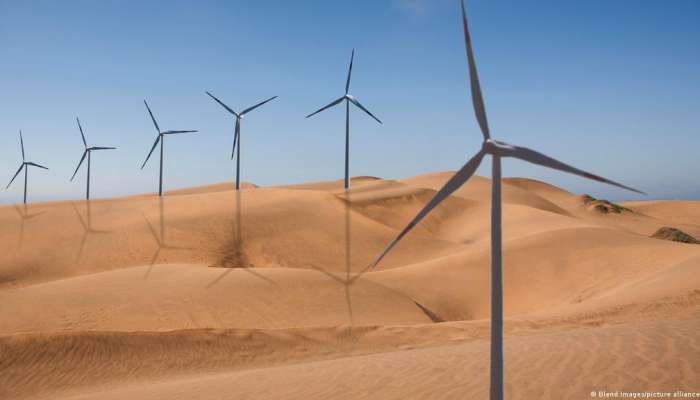
Investment in renewable energy will need to triple by the end of this decade if the world's climate pledges are to be met, the International Energy Agency (IEA) said on Wednesday.
The IEA, which advises governments on energy policy, released its annual World Energy Outlook (WEO) report Wednesday, just weeks before the United Nations COP26 summit in Glasgow.
The report also comes as power prices surge to record levels amid the easing of coronavirus restrictions worldwide.
The widely watched annual outlook shapes expectations among governments, companies and investors over the future use of coal, oil and gas.
Critics have long accused the IEA of underestimating the speed at which the world could switch to renewables, thereby undermining the fight against climate change.
But in this year's WEO report, the IEA has urged governments to make stronger commitments to cut greenhouse gas emissions.
What did the report highlight?
Renewable energy sources, such as solar, wind, hydropower and bioenergy, need to form a far bigger share in the rebound in energy investment after the coronavirus pandemic, the Paris-based agency said.
"We are not investing enough to meet for future energy needs, and the uncertainties are setting the stage for a volatile period ahead," said IEA chief Fatih Birol.
The IEA noted that demand for renewables continues to grow. However, "this clean energy progress is still far too slow to put global emissions into sustained decline towards net zero" by 2050, which the IEA believes will help limit the increase in global temperatures to 1.5 degrees Celsius (2.7 degrees Fahrenheit).
The IEA also said that the extra investment might not be as difficult as it sounds.
"More than 40% of the required emissions reductions would come from measures that pay for themselves, such as improving efficiency, limiting gas leakage, or installing wind or solar in places where they are now the most competitive electricity generation technologies," it said.
Two scenarios
The IEA analyzed two possible scenarios.
The first scenario looks at the measures and policies that governments have already put in place. Despite the measures, annual worldwide emissions would still be the same as developing countries build up their infrastructure, the agency said.
Under this scenario, temperatures in the year 2100 would be 2.6 C higher than preindustrial levels.
The second scenario looks at governments' pledges to achieve net-zero emissions, potentially doubling clean energy investment over the next decade.
If countries manage to implement these pledges in time, the global average temperature increase would be around 2.1 C by the year 2100 — an improvement, but still well above the 1.5 Celsius agreed under the Paris accord, the IEA concluded.
A change of tone
Environmental activists and organizations had previously accused the IEA of supporting continued investment in fossil fuels.
Mans Nilsson, executive director of the environmental group Stockholm Environment Institute, told DW that the IEA has gradually moved toward a "more distinct tone urging decision makers to mitigate climate change."
"Traditionally, [the] IEA has been rather 'soft' on fossil energy and bearish on the potential of renewables. Their overly pessimistic forecasts of the development of installation costs for solar and wind have been infamous," he added.
"This has now been rectified," he said, adding that he believes the IEA seems "still too positive on oil and gas."
"In a way, it is a shift to a more rational and realistic view on the energy transition. It is also a shift to a more activist approach, which is a trend in many multilateral [organizations]," Nilsson said.
Pressure ahead of COP26
Wednesday's report signaled pressure on governments to push for greater climate action at the COP26 summit.
Environmental group Avaaz said this year's WEO is "is an important milestone in the lead up to COP26."
Avaaz said Wednesday's report means no new oil fields for COP26 host the UK, no gas in the Mediterranean for G20 president Italy and no coal mining for incoming G7 president Germany.
"Many governments have relied on the WEO in the past to justify their support for fossil fuels," said David Tong of the Price of Oil nongovernmental organization, which advocates transitioning to clean energy.
"At COP26, [governments] will compromise their credibility if they ignore the IEA's guidance now, when it's finally consistent with the 1.5-degree limit they agreed to in Paris," he told DW.
"We need our leaders to stop listening to fossil fuel CEOs and instead follow the science. Will they back up net zero and 1.5 degree commitments with immediate action to stop new oil, gas and coal extraction, and surge money into clean energy and efficiency solutions?"